By Fiona Mavhinga, Executive Advisor for the CAMFED Association
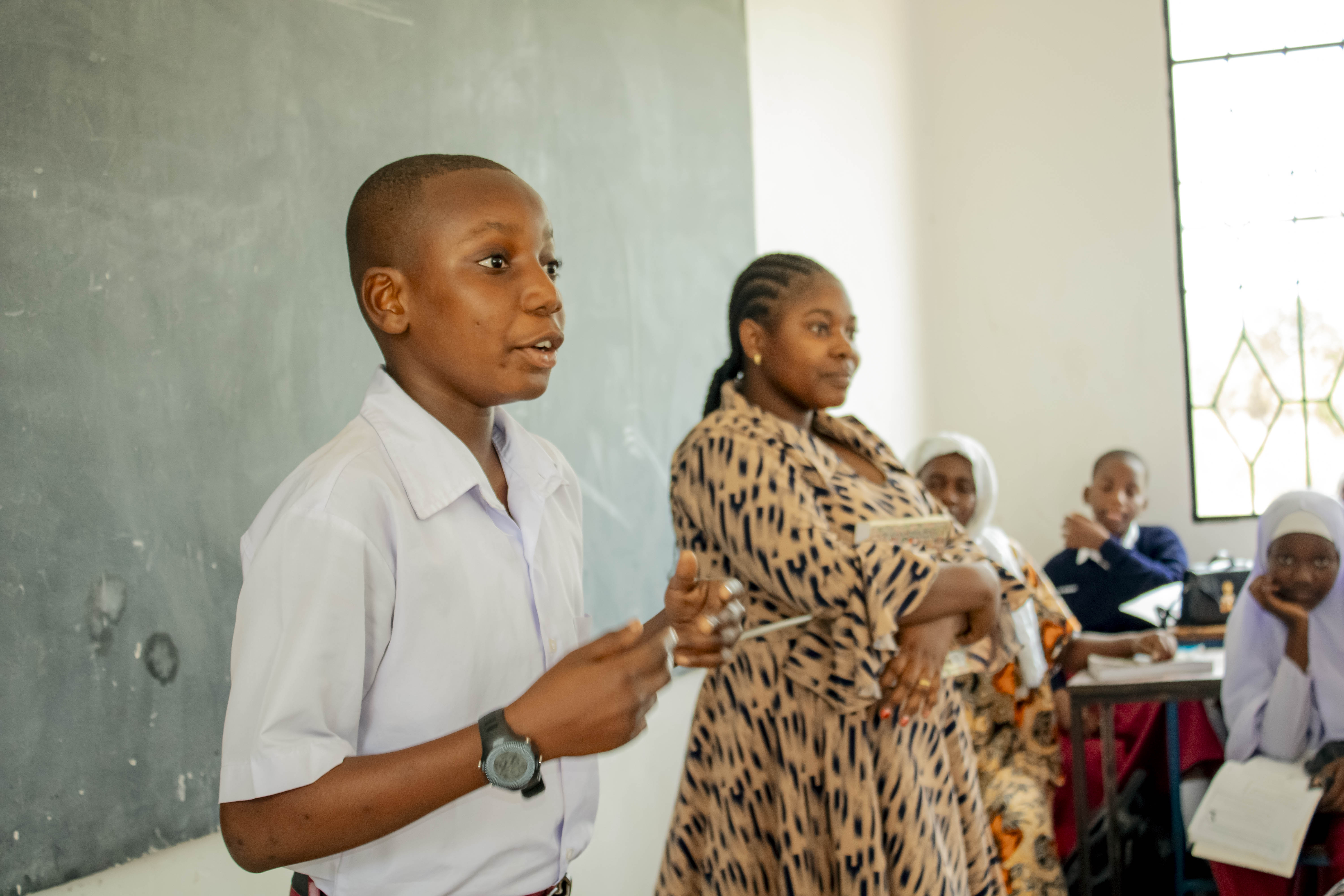
Why ‘big sisters’ matter
I'm Debora, a Learner Guide and school Matron in Tanzania. Once a vulnerable girl myself, I mentor students in Tanzania, helping them stay safe, stay…
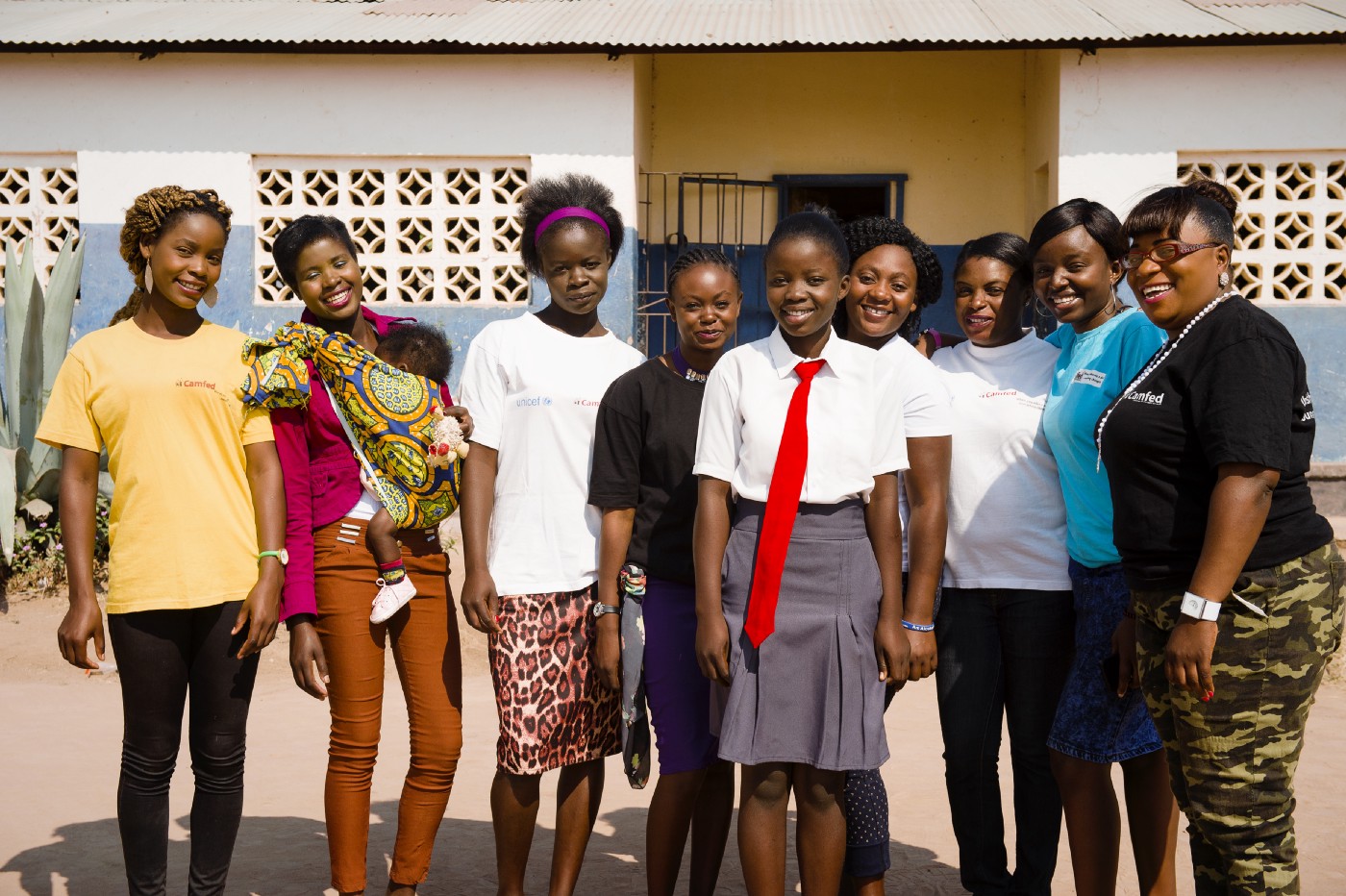
By Fiona Mavhinga, Executive Advisor for the CAMFED Association
This year’s theme for International Day of the Girl “With Her: A skilled GirlForce” speaks to the astounding fact that of the 1 billion young people to enter the workforce over the next decade, 600 million will be adolescent girls. In developing countries, 90% of young people joining the workforce will work in the informal sector. (1) This often means earning no or low pay, and being much more vulnerable to abuse or exploitation. As UNICEF urges the global community to support girls to access learning opportunities, gain transferable skills, and transition from school to work (2), I want to underscore the vital importance of nurturing community support networks around marginalized girls during their critical journey through school to independence.
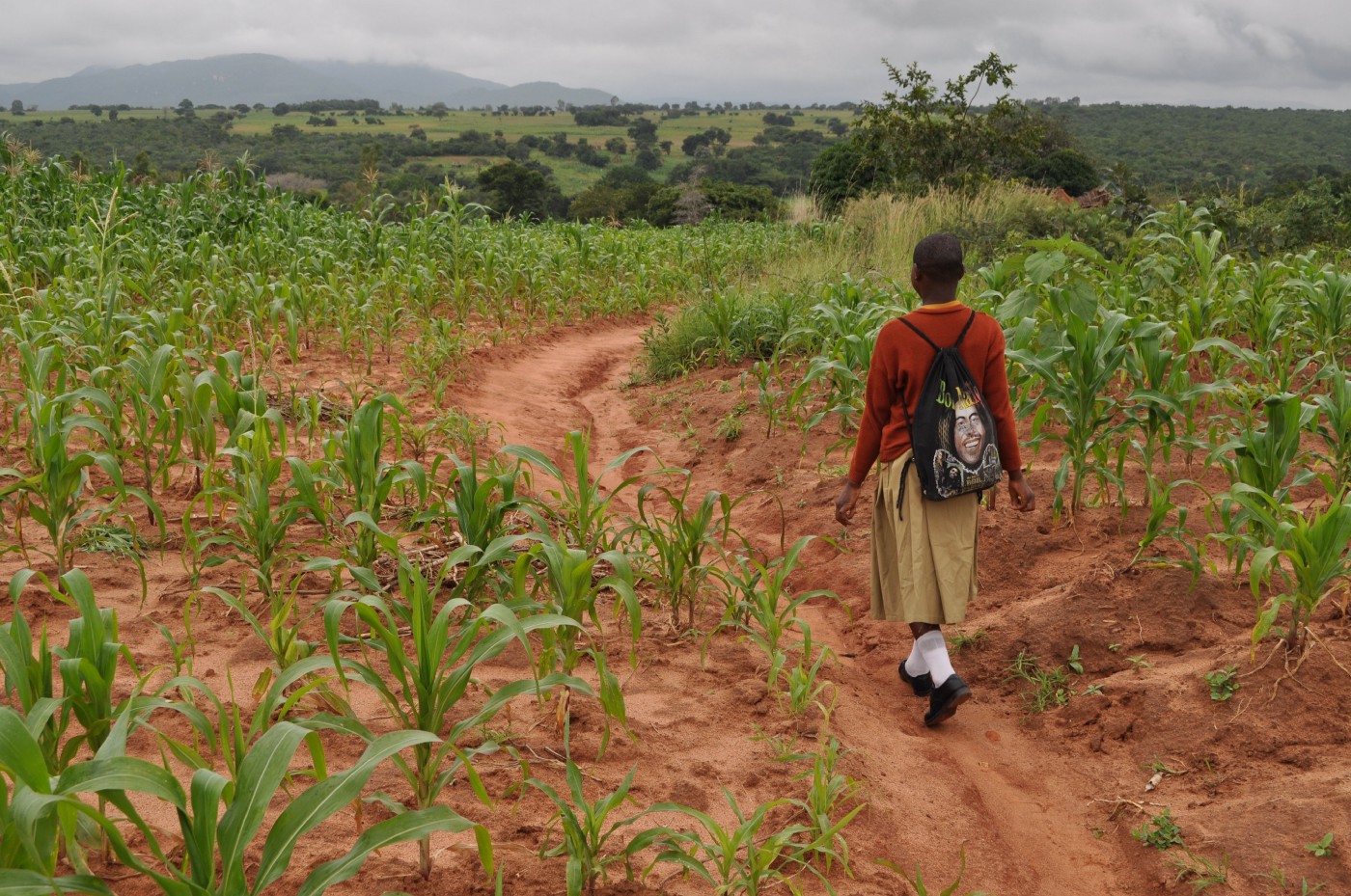
We never support girls in isolation, and we work to mitigate the factors that make them vulnerable, including the long distances to secondary schools. Photo: CAMFED/Patrick Hayes
In what has often been described as the ‘feminization of poverty’, girls and young women living in marginalized rural areas and humanitarian settings, and girls with disabilities, have the least access to quality education, and to decent work. We know that the global economy loses out on tens of trillions of dollars because of the number of girls who never finish their secondary education. (3 ) And due to poverty and deep-seated gender inequality in marginalized communities, even young women who complete their secondary schooling can struggle to build secure livelihoods. They are the least secure in their access to land rights, have few or no assets, and no access to finance or credit.

Girls living in poverty in sub-Saharan Africa are extremely vulnerable to child marriage. Often the families hope that the husband will support her education. Instead, girls tend to become pregnant, and have to drop out of school. Photo: CAMFED/Eliza Powell
That means depending on the informal economy to survive, laboring on family subsistence farms, selling in the streets, or working as house girls or street porters. This puts young women at greater risk of sexual exploitation, physical and emotional abuse. (2 ) Forced by poverty to marry as children, or becoming pregnant before their bodies are ready, their health and well-being — and that of the next generation — is severely threatened.
At the recent event ‘12 Years to Break Barriers and Leave No Girl Behind’ during the 73rd Session of the UN General Assembly (UNGA), global leaders recognized 12 years of quality education for girls as the key to meeting the Sustainable Development Goals (SDGs)(4). While this signaled a sea change, global ambitions, by their very nature, take time to move from financing commitments to implementation. In sub-Saharan Africa alone, 52.2 million girls of primary to upper secondary school age are out of school (3), so it feels like 3 years into the 15-year window to achieve the SDGs we have barely left the starting blocks.
That’s why it’s time for all of us to step up.
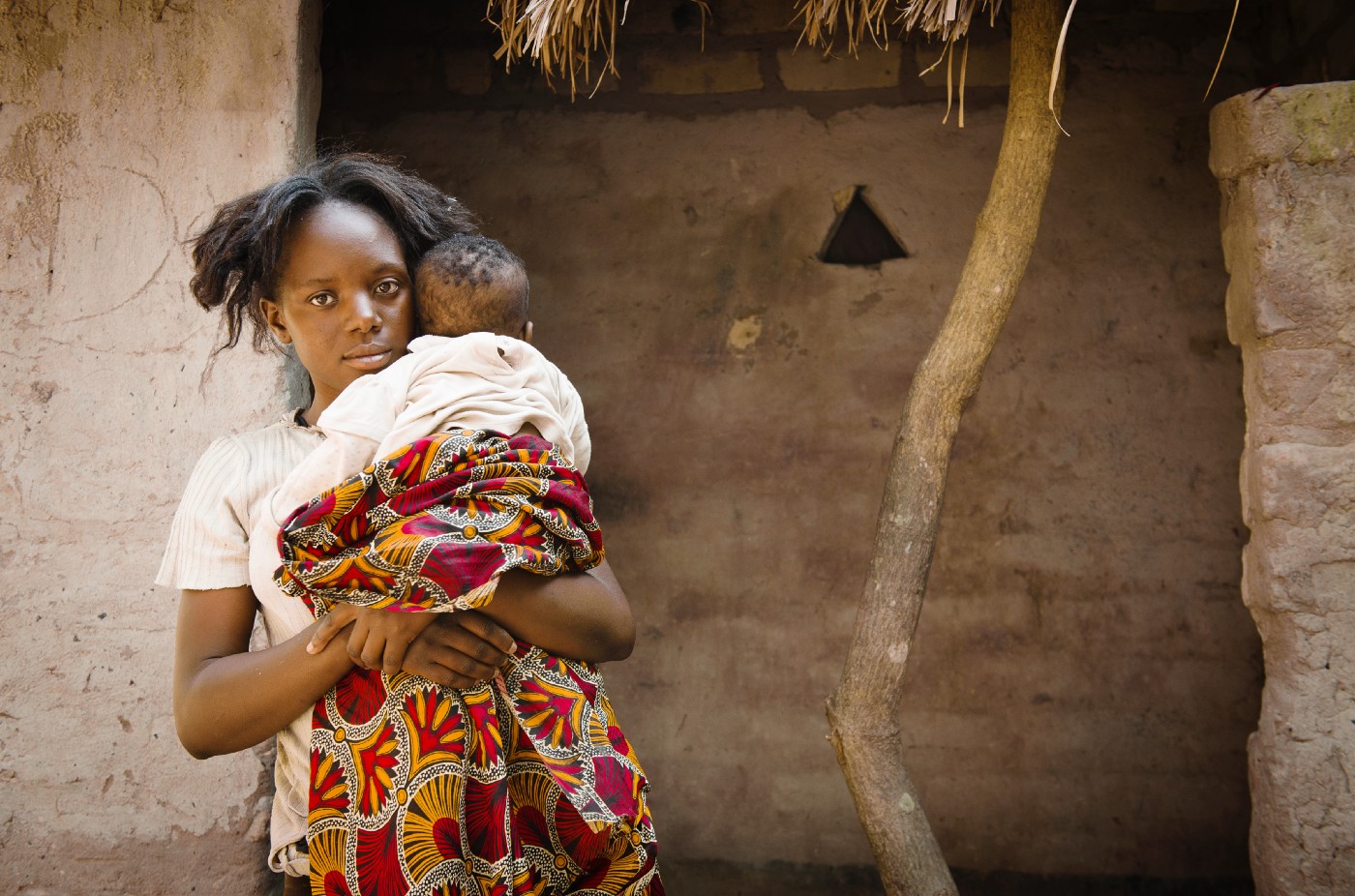
Girls who are denied an education are excluded and desperate. Photo: CAMFED/Eliza Powell
So how do we fast-track this process, while making sure we don’t leave the most marginalized further behind? Surely the purpose of education is to open up a world of knowledge and confidence that endows everyone with agency and decision-making power, what we generally call empowerment.
My experience as a Zimbabwean woman from a marginalized rural background is that the first step on the long road to equality through quality education and empowerment is empathy.
I had my mother and grandmother fighting for me. Desperately poor, they nevertheless worked tirelessly in the fields and on the market to try and keep me in school; they knew what was at stake; they had suffered exclusion from school and wanted a different future for me.
They were my support network.
But when I graduated into a community with no jobs, cut off from opportunity, it was the financial and social support from the Campaign for Female Education (CAMFED) that helped me overcome isolation and build a completely different future as a lawyer and girls’ education activist. It all began in July 1998, when CAMFED facilitated a meeting of the first 400 girls supported through school.
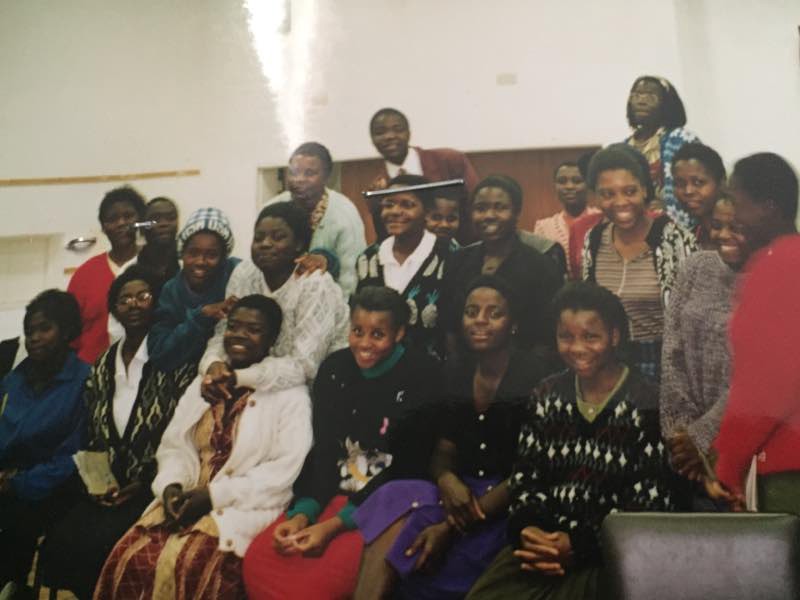
A photo form that day 20 years ago, when the first 400 met. I’m in the front on the right. Today there are 120,000 of us in CAMA. Photo: CAMFED
That day I learned how many of these young women were orphaned, had no family to fall back on, and were therefore even more vulnerable than me as they faced their future. They came in borrowed clothes; some only had their school uniform to wear.
“Sugar daddies” not only tempt impoverished school-age girls with gifts that might enable them to pay their school fees; for young women graduates, early marriage still looms large as a way out of their material poverty.
This unequal and often desperate arrangement carries with it all the dangers of sexual violence, physical abuse, early pregnancy, HIV/AIDS, and a spiral into poverty and hard toil on unforgiving land.
So 20 years ago, during that meeting, we founded CAMA, the CAMFED alumnae network. It became our first line of protection, a sisterhood built on empathy that provides emotional support, shares knowledge and opportunities, and has grown into a structured body with elected representatives, which are key to designing, developing, delivering and scaling the solutions that make CAMFED’s programs so impactful today.
As educated young women with lived experience of the barriers to girls’ success, we’re driving action right now, at the forefront of the Campaign for Female Education. We support each other, and reach out to the most vulnerable in our community.
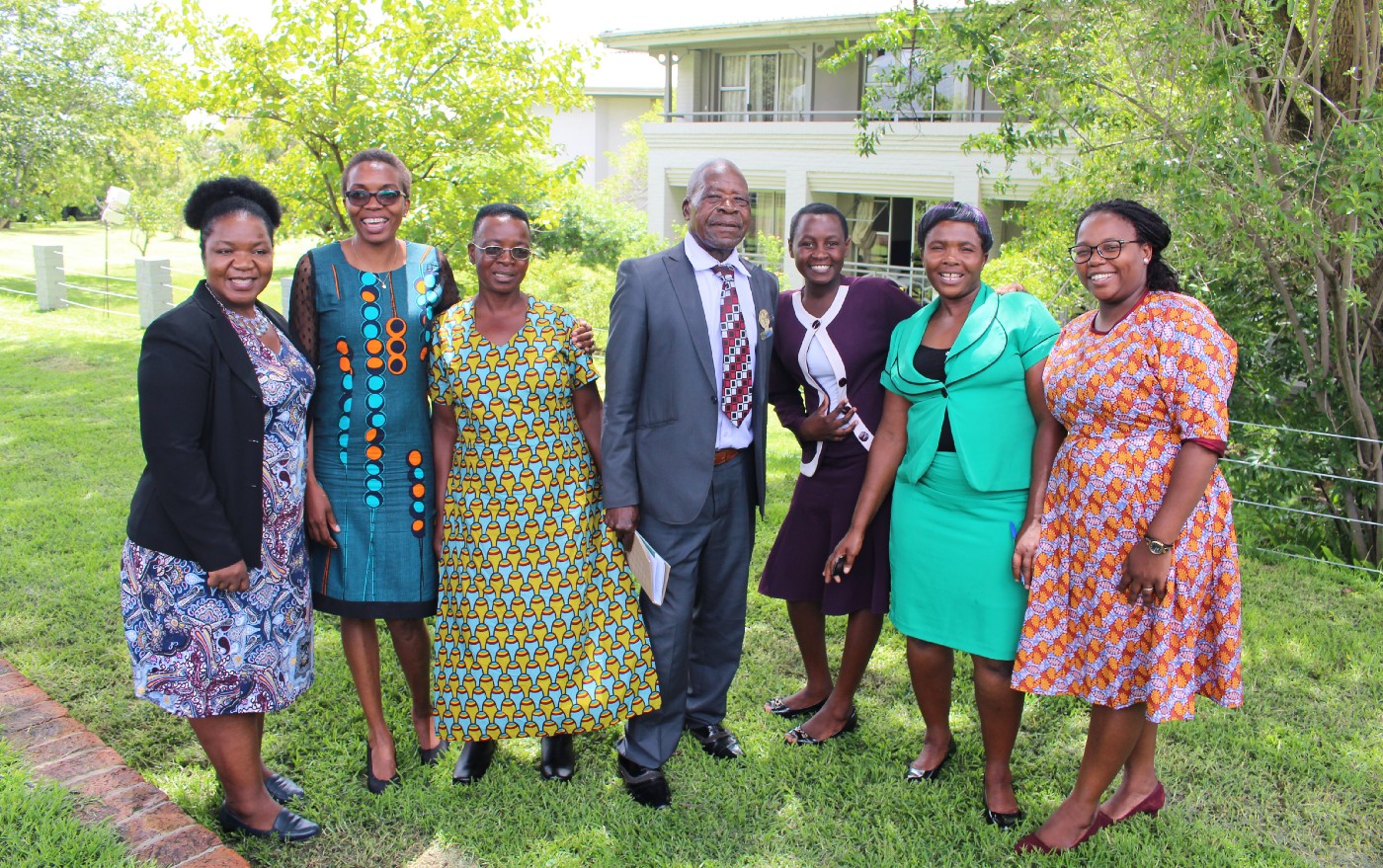
Me (on the right) with a four other CAMA members who now lead CAMFED in Zimbabwe. From left: CAMFED Executive Director Angeline Murimirwa; CAMFED National Director Faith Nkala; the Chair of one of our amazing Mother Support Groups, Simbisai Machava, Chief Chipuriro from Guruve District; CAMA National Chair Tendai Zwingerai; and outgoing CAMA National Chair Judith Zvimba.
We live and work in the most marginalized districts of Malawi, Tanzania, Ghana, Zimbabwe and Zambia, partnering with girls, schools, communities, local leaders and government officials, and with philanthropists and governments across the world, to make sure we get the foundation right for girls. Our multi-dimensional approach tackles all of the barriers to girls’ education, equality and empowerment.
Together, by the end of 2017, the Campaign for Female Education had:
And empathy is at the heart of every intervention, of every partnership.
Here are some concrete examples of that this looks like:
We felt that if we help her today, tomorrow she’ll be able to help someone, and that’s how the world will change
Issah, CAMA member, Ghana
Across the five countries where we work, CAMA members extend CAMFED’s reach by using their own scarce resources to support even more girls to access an education: On average, each educated young women supports another two girls to go to secondary school, and even more children at primary level.
In rural Ghana, CAMFED alumna Issah rallied her support network around a girl named Belawu. Issah and her CAMA sisters not only pooled their resources to meet Belawu’s school going costs, but also invited her into their ‘family.’ The importance of role models and psycho-social support cannot be underestimated when it comes to keeping girls safe from early marriage, and motivated to learn and succeed.
Issah and Belawu shared their story with us for International Day of the Girl:
‘My Better World’ has dramatically increased my level of self-awareness. Now I know exactly who I am in society. Through My Better World’, I can now guide other girls who don’t understand themselves and end up in situations that can ruin their lives.
Rehema, student, Tanzania
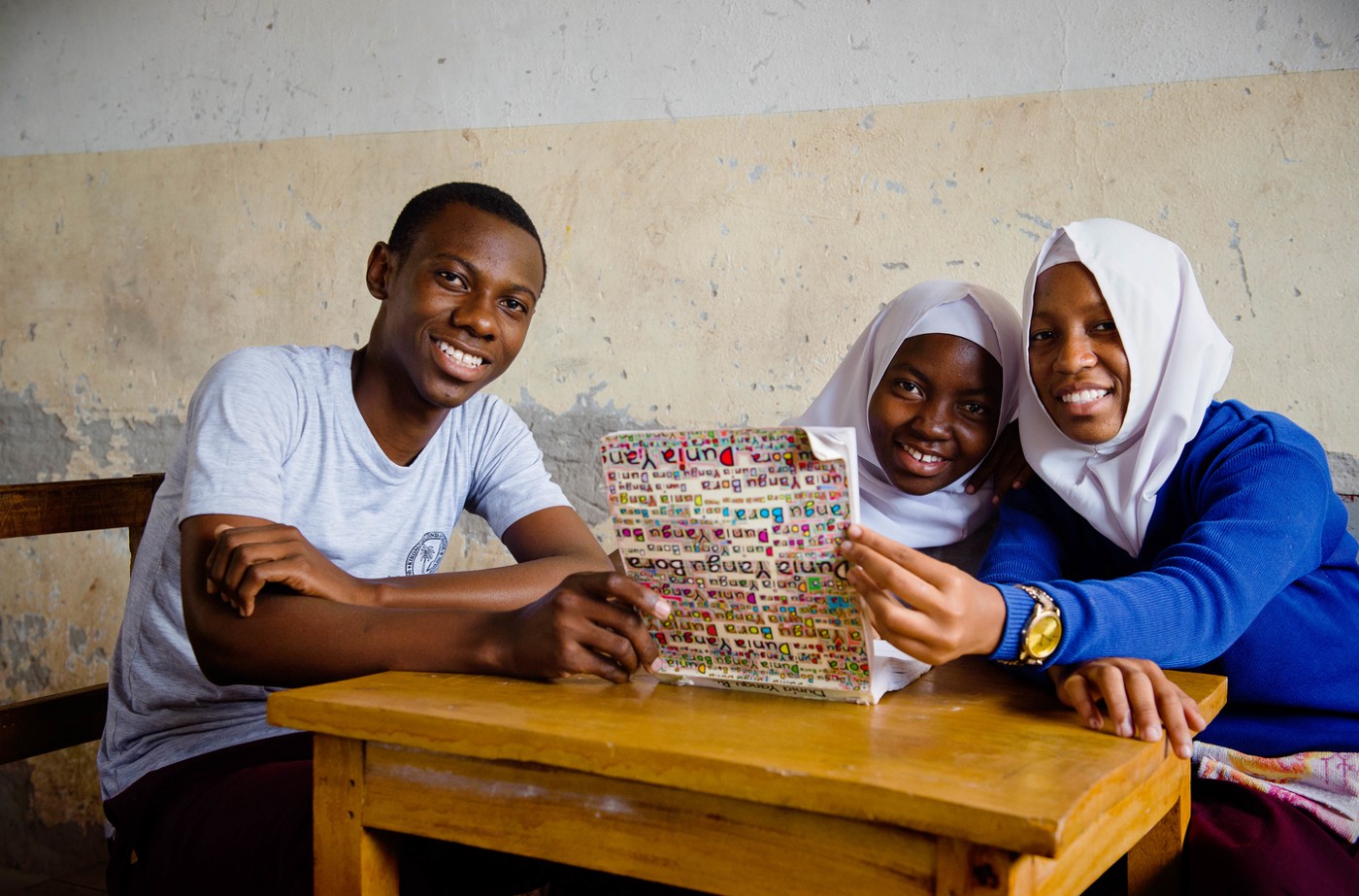
Rehema (middle) with her classmates and the ‘My Better World’ life skills workbook in Swahili, in Tanzania. Photo: CAMFED/Eliza Powell
Across our countries of operation, CAMFED alumnae in CAMA are volunteering as ‘Learner Guides’: peer mentors who deliver a uniquely tailored life skills and well-being program to vulnerable children in their local schools. The ‘My Better World’ curriculum helps children build their confidence and agency, understand their rights and responsibilities; stay safe and protected; set goals, and learn how to achieve them.
As ‘big sisters’ Learner Guides become important confidantes, and work with schools, teachers, parents and local leaders to make sure that girls have the emotional and practical support they need to succeed. This includes leading study circles to improve learning, and following up on girls who are absent from class due to family difficulties.
In an exciting collaboration, the Discovery Learning Alliance (DLA) has adapted CAMFED’s curriculum into a part-animated video series for adolescents, following the adventures of six African teenagers as they navigate the challenges of school, family and friendship. Their stories are interspersed with real stories, including of girls we currently support, like Philomena and Deborah from rural Tanzania, who serve as an inspiration to all of us in the love and support they have each other.
Camfed and CAMA also work to address the vulnerability of girls in the critical transition period after school, when expectations to contribute to the economic survival of their families soar. Facing a lack of jobs, training, and the money and resources necessary to take the next step to economic independence and leadership can force young women to remove themselves as family dependents through marriage, or to contribute through unpaid labor or unsafe labor far from home.
Camfed provides support to the CAMA network in the form of training, business grants, and post-secondary education, investing in young women’s capacity as leaders, professionals, and entrepreneurs. Through CAMA, young women develop more secure livelihoods and establish themselves as powerful role models in their communities.
The CAMA network is the driver behind the scale and reach of these youth enterprise initiatives. CAMA business experts, based in rural communities across Africa, lead the training and mentoring of young women as they manage the transition from school to entrepreneurship. Their leadership ensures cost-effective, high quality and relevant support for new entrepreneurs, who never have to go it alone.
CAMA members are business entrepreneurs, teachers, lawyers, doctors, social workers, and political leaders, all with a strong and intimate understanding of the barriers to girls’ education — putting themselves at the forefront of dismantling those barriers, rallying everyone in their communities to do the same.
Through their resilience in overcoming tremendous hardship, and their transformation from shy girl to confident leader, young women are showing parents, local and national authorities that investing in girls delivers the biggest returns. CAMFED and CAMA bring these groups together as the duty bearers: those responsible for safeguarding and educating their girls.
Through our donor partners, we can then match local community resources with the financial resources girls need to overcome the biggest barrier: poverty. As CAMA leader Nimatu shows us in the video below, these educated young women will pay it forward
We know that it won’t be easy to reach 130 million out of school girls around the world. But we know that if we are to reach them successfully, we need to get the process right. And that process starts with strong networks of support, ensuring girls are safe to learn and thrive, and everyone is and remains accountable to the girl.
Fiona Mavhinga was one of the first girls supported by The Campaign for Female Education (CAMFED) in Zimbabwe. She is a lawyer, and a founding member of Camfed’s CAMA alumnae network. Today she leads on the strategic development of the CAMA network as philanthropists and activists working to secure girls’ right to education.
If you believe in what they do, get involved today.
(1)International Labour Organization. GLOBAL EMPLOYMENT
TRENDS FOR YOUTH 2017. http://www.ilo.org/wcmsp5/groups/public/—dgreports/—dcomm/—publ/documents/publication/wcms_598669.pdf
(2)UNICEF. International Day of the Girl 2018. https://www.unicef.org/eca/international-day-girl-2018
(3) World Bank Group. Missed Opportunities. The High Cost of Not Educating Girls. https://openknowledge.worldbank.org/handle/10986/29956
(4) UN Girls’ Education Initiative. 12 years to break barriers and leave no girl behind. https://www.ungei.org/publication/12-years-break-barriers-and-leave-no-girl-behind

I'm Debora, a Learner Guide and school Matron in Tanzania. Once a vulnerable girl myself, I mentor students in Tanzania, helping them stay safe, stay…
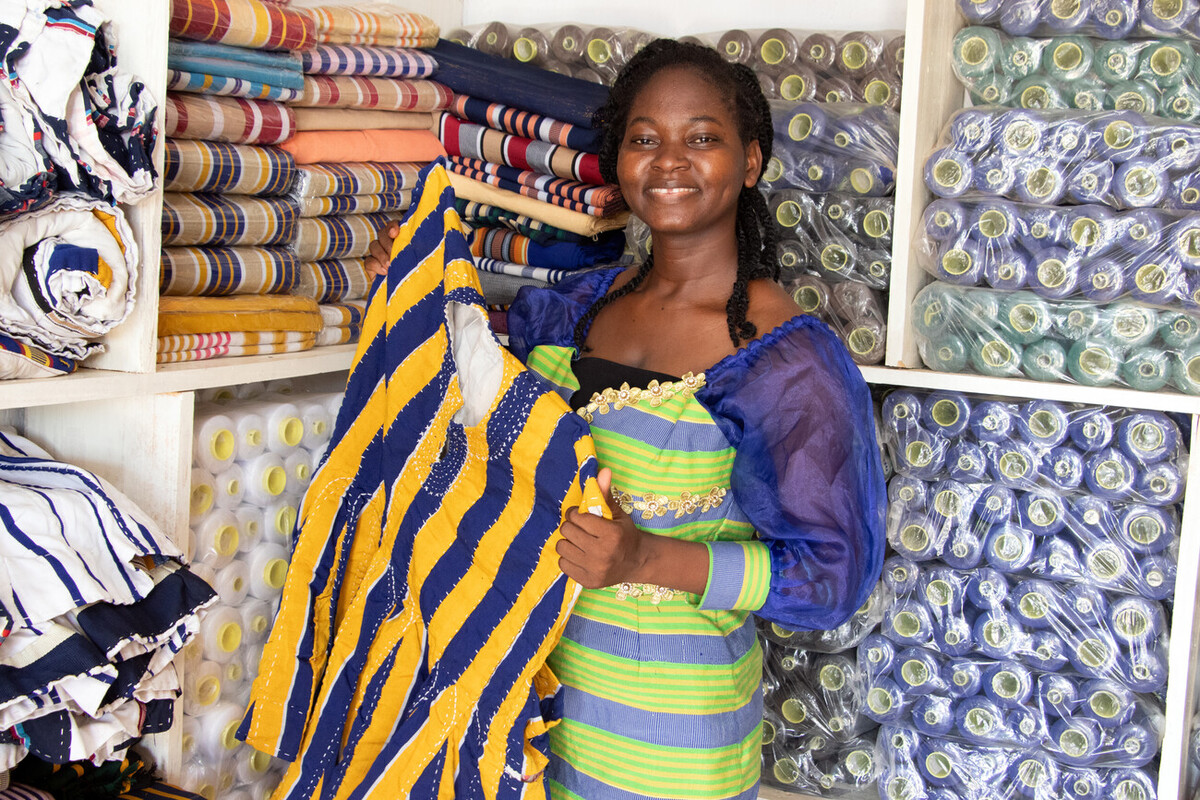
In part 4 of our blog series, ‘Crafting Change’, hear from Diana, Lydia, Veronica and Victorine about how they’re championing the previously untapped potential of…
Dale Howey $47.6
Joan Moad $47.6
Nancy Mazur $21.4
Freida Cotton $10.9
Jo Goolsby $42.4
Shayne McGinnis $5.6
Sahand Zp £104.1
Cynthia Springer $10.9
robin westmoreland $100
James Huggett £124.9
PAMELA LEE ANGELBAECK $22.5
Tommy McGreevy $27.7
Constance Hawkins $3
Amit Roy £12.7
Elizabeth Adams £10.6